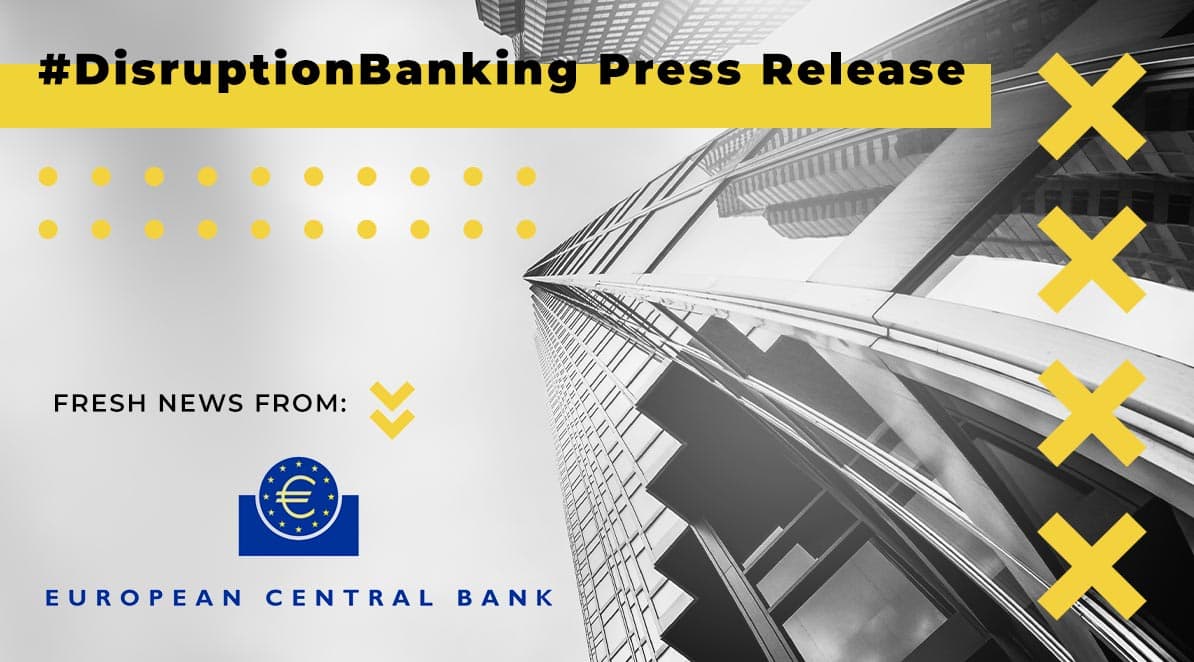The UN has declared 2025 as the International Year of Quantum Science and Technology, and the EU looks well placed to take a leadership role in the burgeoning industry this year and beyond. But with four in five startups in the sector run by men, DisruptionBanking asks what the future holds for women in quantum computing .
🎉𝟏𝟎𝟎 𝐘𝐄𝐀𝐑𝐒 𝐎𝐅 𝐐𝐔𝐀𝐍𝐓𝐔𝐌
— Quantum Flagship (@QuantumFlagship) January 14, 2025
2025 is the International Year Of Quantum #IYQ2025! 🪐 Quantum transforms many fields but it is more than technology— it’s about reshaping how we view the very nature of reality, and opening new doors to what's possible.@QuantumYear2025 pic.twitter.com/S22z1Xxynp
To be clear, there are positive indicators for women in quantum technology in the EU. Europe has contributed its fair share of women trailblazers to the industry, such as award-winning Spanish startup Q-Lion founder Andrea Rodriguez-Blanco, German software firm HQS Quantum co-founder and COO Iris Schwenk, and Finnish quantum healthcare company Algorithmiq CEO Sabrina Maniscalco, who is also professor of Quantum Information, Computing and Logic at the University of Helsinki.
But women trailblazers themselves are calling for the industry to be more female-friendly. At the Q2B24 summit in Paris last year, quantum healthcare company Algorithmiq COO Kirsten Nehr said that a staggering 80% of quantum startups are run by men, and warned of a gender bias when it comes to funding enterprises, citing a 2022 report by European Women in VC that surveyed more than 300 European venture capital firms and found that just 15% of decision-makers in control of funds worth more than €25 million are themselves women. Similarly, last November the European Institute of Innovation and Technology published findings that only 17% of deep tech startups have at least one woman as a founder member.
A survey by recruitment firm Quantum Futures cited in 2023 by the Inclusion Initiative at the London School of Economics also sounded a bleak note, finding that 79% of quantum companies lack a female senior figure, and furthermore that a measely 1 in 54 applicants for quantum roles across the board were women. Curiously enough, this data suggests that women have a higher success rate in quantum leadership roles compared to entry-level and other positions – in spite of which the industry is still struggling to attract, and recognise, female talent.
Dr Oxana Mishina holds a PhD in physics and is education coordinator at QTEdu, an organisation that aims to foster more diversity and inclusion in the industry and ensure that the future sees more women in quantum computing in the UK, Germany, France , and other European countries. She confirms that there is a gender imbalance when it comes to applying for jobs, not just in quantum computing, but throughout the industry.
“Research demonstrated that women do not even consider applying to a position unless they have 70% of the competencies required – while men apply having 40%,” she says. The way in which quantum jobs are advertised exacerbates this problem, with vacancy postings requiring competencies that are either not essential to the role or could be learned on the job.
“One particularity of job requirements in quantum computing is that the needs do not yet match the competencies which [are advertised] on the market,” she says, calling for “careful revision and clear indication of what competencies are strictly necessary and could be acquired during work”.
She adds: “The list of competencies in the job advert has a small overlap with the competencies that one person can offer. There may be no person that has all the competencies required. Learning competence on the job should be supported and motivated. The job description texts need revision, which could be requested by industry leaders and assisted by consultant experts in gender balance.”
At QTEdu she is trying to address the problem by designing a guidance framework to help people get the necessary qualifications to pursue a career in quantum computing. “It is based on careful study of industry needs and used by education providers when defining the new courses,” says Mishina. “This framework is also a useful guideline for designing job postings. Five years ago it was very different, there were practically no programmes preparing people for work in a quantum computing company. Physicists were able to cover some of the competencies, but there were not enough who wanted to work in a company and stop doing research. Nowadays there are more educational paths available.”
Quantum computing has an impostor syndrome problem
The Inclusion Initiative report appears to confirm Mishina’s hypothesis, saying: “One issue is that individuals often self-select out of roles before they even apply because of the language of the job description.”
However, the confidence problem many women appear to be suffering from runs more deeply, according to quantum computing software firm BEIT co-founder and CEO Paulina Mazurek, because even when they do apply and are faced with a female employer willing to hire them, they are still more likely to count themselves out.
Mazurek told the Q2B24 panel that she had interviewed women with PhDs who mistakenly believed they were “not good enough” for a quantum role – despite having been offered on-the-job training to address any skills gaps – with “impostor syndrome” more prevalent among female candidates.
🚨 Big news on arXiv! 🚨 Over 30 female Quantum Professors have united to release a powerful Manifesto of Values. They reflect on gender issues in quantum physics and call for change with a clear set of values. Let's support and amplify their voices! #WomenInSTEM #QuantumPhysics pic.twitter.com/CVfxI05axz
— Ferlaino Group (@FerlainoGroup) July 5, 2024
The UN initiative is intended to herald a year that celebrates quantum computing, a century since founding fathers Max Schrödinger, Werner Heisenberg, Max Born, and Pascual Jordan pioneered the science behind the technology. But unless more women get involved, they could once again find themselves excluded from the party.
A quantum leap into the future of computing
And it’s not a party you want to miss out on if you care about the STEM world. The stakes could not be higher – once the machines are fault-tolerant and error-corrected, they will revolutionise industries as diverse as pharmaceuticals, finance, logistics, and cybersecurity because they will be capable of performing specific tasks at a scale far higher than today’s best computers can manage.
To give some idea of this, in December last year Google’s Willow quantum computer chip was able to solve in under five minutes a problem that a supercomputer would have taken 10 septillion – that’s 10 to the power of 25 – years to unlock. The potential benefits to scientific research cannot be easily underestimated, and that’s why the industry is estimated to rise in market value from an already tidy US$1.79 billion this year to north of US$7 billion in 2030.
Quantum computers offer many promising applications dependent on greatly improved performance. Read how we’ve combined quantum error correction w/ our latest superconducting processor, Willow, exponentially reducing error rates w/ increasing qubit scale →https://t.co/flyuINreWy pic.twitter.com/AFcv8bPX5c
— Google AI (@GoogleAI) December 9, 2024
Europe is well positioned to maintain and grow its slice of this pie. The EU’s Quantum Flagship program has a €1 billion budget and a ten-year mandate to unite policy makers, industry players and academics to ensure the top quantum computing institutions in Europe remain on the global map going forward. EuroQCI aims to build a secure quantum computing network that straddles the EU, while the European Quantum Industry Consortium is a non-profit association “dedicated to the growth of the quantum technology sector and making Europe a global market leader”.
All well and good, but faced with an industry that’s replete with Y chromosomes, what can be done so the EU can start seeing more women leaders in European tech and attract, rather than exclude, highly talented and intelligent women to the field?
Want to learn more about taking a gender aware approach to #research and #teaching? The recorded version of yesterday's Open Forum with Natasza Kosakowska-Bezrezecka and Magdalena Żadkowska from @Uniwersytet_GD is now live! 🎉
— MINDtheGEPs (@mindthegeps_eu) January 14, 2025
Watch it here: https://t.co/JQlbBtriZh pic.twitter.com/4ipiQNGUpZ
Signs of progress – but women need to network
Organisations like Girls in Quantum, founded by teenage prodigy Elisa Torres Durney, MindTheGEPS, which aims to reduce the gender gap in European research institutions, and Women In Quantum Development, a Netherlands-based organisation fighting for more inclusivity in the sector, are working to address the problem.
On her flagship website, Torres states: “I founded Girls in Quantum because I want other girls to be able to learn about quantum computing and have the same opportunities and experiences that I had. So girls can have the opportunity to join the field and bridge the gender gap by building a strong community of female role models to inspire, connect, and contribute.”
Mishina is confident that eventually quantum computing could set a positive example to other industries, encouraging bright young women to follow their dreams and not be discouraged.
“A new and emergent field, quantum computing will offer a growing number of new jobs and require the formation of a numerous workforce,” she says. “A change of attitude at this moment would have a significant impact.”
For now, and perhaps the foreseeable future, quantum computing like all too many other industries will remain skewed towards men. But that can only change if women, as Behr put it at the Q2B24 panel, “feel the fear and do it anyway”.
Mishina also recommends that women keen on getting into the industry follow social media influencers like Shaeema Zaman, whose company Science Melting Pot aims to make STEM industries more accessible to women “through services in science outreach, diversity and inclusion”.
“I followed several workshops and I highly recommend them [for] learning great competencies and tools for judgment, behaviours and decision making,” says Mishina.
More broadly, organisations like DigiQ aim to help encourage anyone interested in pursuing a career in quantum computing in Europe by establishing a Masters degrees in the discipline and making multilingual courses available across the continent.
John Riley, chief of emerging technology at Impactifi, which helps tech firms expand globally, agrees with Mishina that online quantum education is a great route into the industry, but also stresses that women will have to network with each other to redress the gender gap.
“The best way for women to engage with quantum computing is by building relationships with others in the field,” he says. “As women enter the quantum field, they will increasingly encounter other women who are making an impact. This visibility fosters a sense of belonging and should start to encourage more participation. By highlighting these role models and inclusive initiatives, this should continue to inspire and motivate the next generation of women in quantum computing.”
What can men do to help?
Riley believes “an attitudinal shift” is already occurring among men in the quantum industry, though he stresses “its pace varies by region”, adding: “Some areas already have diverse quantum teams, while others lag behind. The involvement of women at this early stage of quantum adoption is a positive sign that change is happening now, setting the stage for greater equity in the future.”
He shares Mishina’s optimism that quantum computing can be a trendsetter for other tech industries. “The progress being made in quantum computing has the potential to catalyse greater diversity across the broader tech sector,” Riley adds. “Quantum’s convergence with emerging technologies like AI, blockchain, and IoT underscores the importance of diverse perspectives. As quantum becomes a cornerstone of this tech convergence, it can lead by example, driving inclusion and diversity throughout the industry.”
“Women industry leaders would have a hard time doing anything alone – leaders of all genders need to act together to address the shortage of female candidates,” adds Mishina.
Author: Damien Black
See Also:
How IBM is ensuring that the World is Quantum Safe | Disruption Banking
How IBM’s cloud makes quantum computing safe for banks | Disruption Banking
















4 Responses
Great article on an important topic! Thank you for mentioning us. You can find more about our work on our website – https://www.wiqd.nl/ and our social media 🙂
Great article!
Great article – thought provoking whilst also being ahead of the game in terms of thinking
Very interesting and well presented!